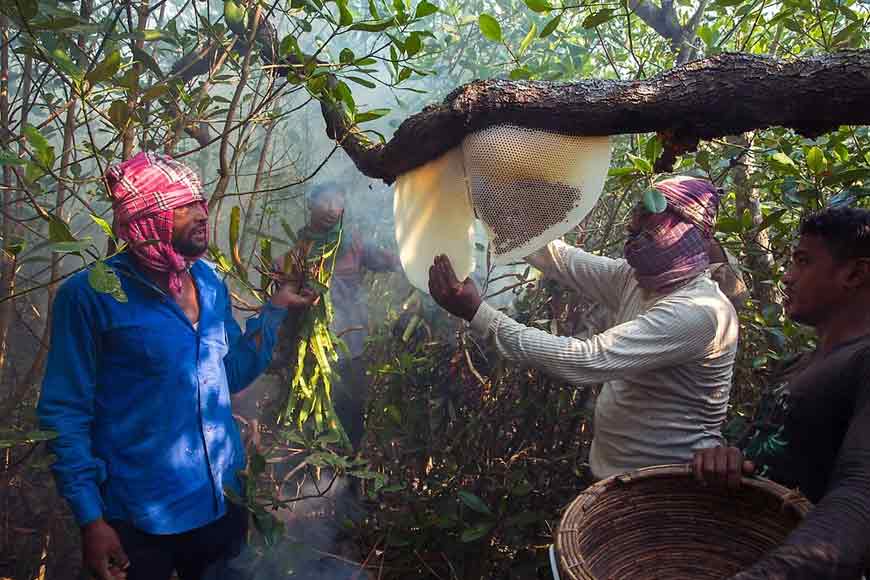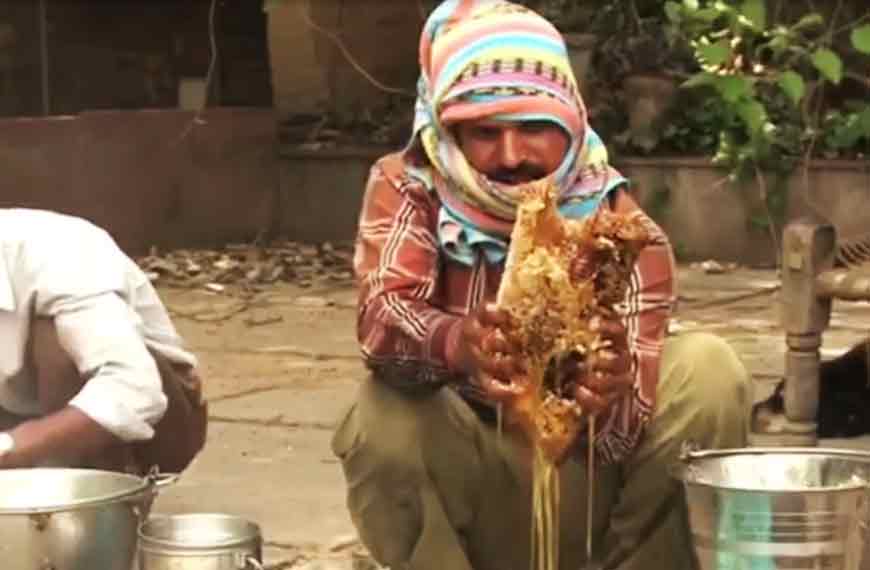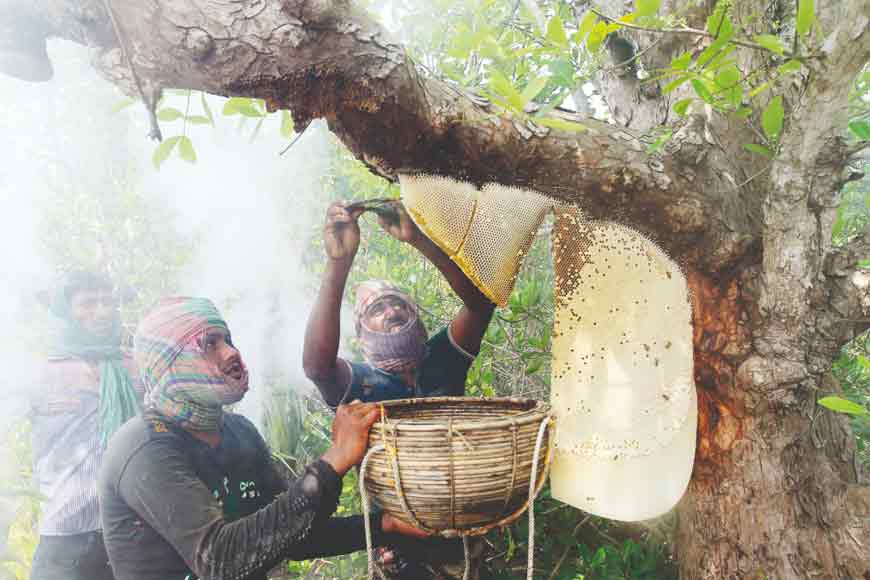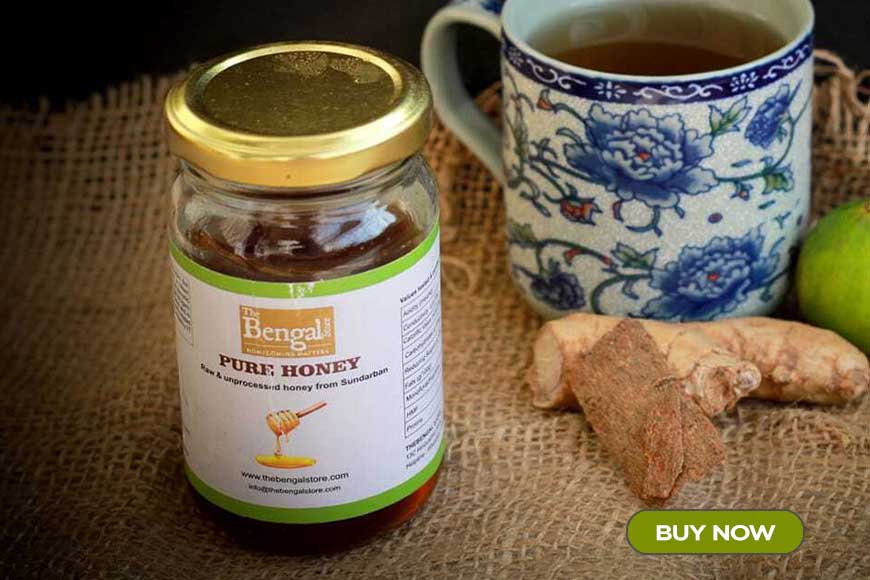India makes a ‘bee-line’ for pure Bengal Honey

They are super busy, their deft hands packing kilos of that golden immunity booster that even Rigveda had mentioned as the antidote to viruses centuries ago. Their sales and orders from across India have suddenly shot up in the past week, their IIT Kharagpur ‘tested’ organic honey anytime gave India’s leading brands a run for their sales. And why not? After last week’s CSE (Center for Science and Environment) report that detected significant adulteration in the form of Sugar Syrups in the honey of leading brands including popular ones like Dabur and Patanjali, ‘Pure Sunderban Honey’ sold by smaller Bengal brands like The Bengal Store have hit the limelight.

CSE in a media report clarified: ‘We stand by our findings. Our findings have revealed that 10 out of 13 brands of Honey have failed all tests of purity. This is about the consumer’s health. We have shared detailed laboratory results of all samples on our website.’
As Rohit Sen of The Bengal Store said: ‘The honey that we offer comes directly from the Moulis of Sunderbans, who cut the beehive, squeeze the honey out of it, fill it in a container and give it directly to us, they do not even heat it or add anything to it. We simply take it from them and pour it in a glass bottle and send it to customers. Thus, the honey one gets from The Bengal Store is in its purest form.’ Sen produced the ‘tested & certified by IIT Kharagpur (AFT Lab)’ certificate which even mentions each ingredient and their percentages, including HMF being 26.49, the indicator of the quality of honey. It is used as a marker to prove the raw, uncooked nature of the honey as well as showing that the product has not been stored for an excessive period of time. The IIT certificate also mentions The Bengal Store Honey is free from water content and sugar and has higher mineral content compared to popular brands.
The honey collectors of Sunderbans have suddenly turned into the ‘eye of a storm’ raised by CSE reports last week with counter allegations by big brands trying their level best to refute the reports. At a time when sales of honey across India and world has increased manifold as a natural antidote against COVID-19 virus, sale of adulterated honey that would cause more harm than good to the human body and thus is a serious cause for concern as drinking sugar syrup laced honey can cause adverse health impact, including obesity, diabetes, heart diseases, infections and inflammation. CSE started conducting the studies taking off from why ‘Honey farmers in North India reported a massive dip in profits when the sales of honey had hit the roof?’ As per data from the National Bee Board, India exported 1.05 lakh metric tonnes of honey in 2017-18, a 200 per cent jump in 12 years. Unfortunately, Indian Honey turned out to be the most adulterated food products in the world.
CSE’s Sunita Narain told to the national media. The NMR (Nuclear Magnetic Resonance) used by the German lab is an advanced test that can detect adulteration with modified sugar syrups, which may otherwise go undetected. It is being used in different parts of the world for the same reason and even the Indian government has mandated it since August 2020 for honey meant to be exported. So, it could be important to include such advanced testing in government testing system that can help the enforcement agencies to know if the honey sold to consumers is adulterated or not.
As Rohit Sen of The Bengal Store said: ‘The honey that we offer comes directly from the Moulis of Sunderbans, who cut the beehive, squeeze the honey out of it, fill it in a container and give it directly to us, they do not even heat it or add anything to it. We simply take it from them and pour it in a glass bottle and send it to customers. Thus, the honey one gets from The Bengal Store is in its purest form.’ Sen produced the ‘tested & certified by IIT Kharagpur (AFT Lab)’ certificate which even mentions each ingredient and their percentages, including HMF being 26.49, the indicator of the quality of honey.

CSE in a media report clarified: ‘We stand by our findings. Our findings have revealed that 10 out of 13 brands of Honey have failed all tests of purity.
This is about the consumer’s health. We have shared detailed laboratory results of all samples on our website.’ The CSE has alleged that bigger brands of Indian honey have designed their products to pass the regulations laid down by the Food Safety and Standards Authority of India (FSSAI), but it was a German lab that saw through the tinkering with sugar syrup. In Indian markets, these sugars were called ‘All Pass.’ “It is a food fraud more nefarious and more sophisticated than what we found in our 2003 and 2006 investigations into soft drinks; more damaging to our health than perhaps anything that we have found till now — keeping in mind the fact that we are still fighting against a killer Covid-19 pandemic with our backs to the wall. This overuse of sugar in our diet will make it worse,” CSE’s Sunita Narain told to the national media. The NMR (Nuclear Magnetic Resonance) used by the German lab is an advanced test that can detect adulteration with modified sugar syrups, which may otherwise go undetected. It is being used in different parts of the world for the same reason and even the Indian government has mandated it since August 2020 for honey meant to be exported. So, it could be important to include such advanced testing in government testing system that can help the enforcement agencies to know if the honey sold to consumers is adulterated or not. It can also help the agencies know which companies are selling adulterated honey, which is a crime, and take required punitive action against the defaulters.
Meanwhile, the FSSAI has announced that it is seriously looking into the CSE’s findings. But in the middle of this ‘man-made health storm’ brews the busy hours for Sunderbans’ honey collectors and smaller home-grown brands selling ‘unadulterated pure honey’ for your health benefits. So why not go local?










